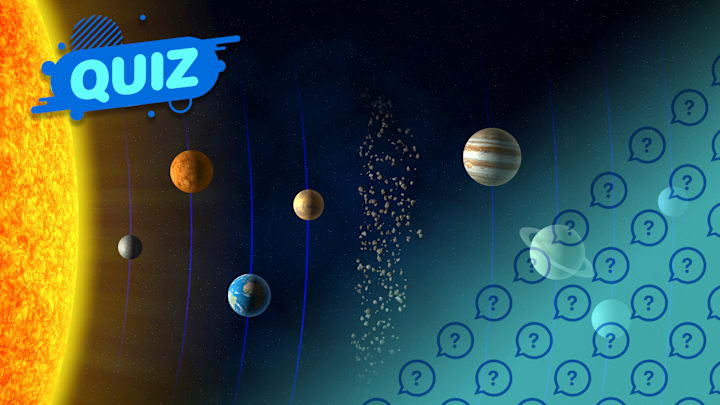We often think of Earth’s moon as an astronomical curiosity—it’s beset by bizarre theories about how it can influence human behavior but also dazzles us with eclipses. Our moon bears a lot of responsibility: Its gravitational pull on the planet influences ocean tides; it can tell us a lot about the history of our solar system; and the midcentury race to land on it became a political victory.
Of course, our moon isn’t the only celestial body orbiting larger planets. See if you can match the moon to the planet it belongs to in the quiz below.
Astronomers once only had knowledge of a few moons—but with advancements in telescopic technology, that number grew and grew. In the first part of the 20th century, Jupiter had just a handful of confirmed moons. Today, the number is at 95. As imaging gets better, so will our understanding of moons and their role in supporting life.
It’s even theoretically possible for moons to have moons of their own, which could carry labels like subsatellite, submoon, or moonmoon. As none have been discovered, the official terminology has yet to be decided upon. (Our vote: moonettes.)
Take Our Latest Quizzes:
